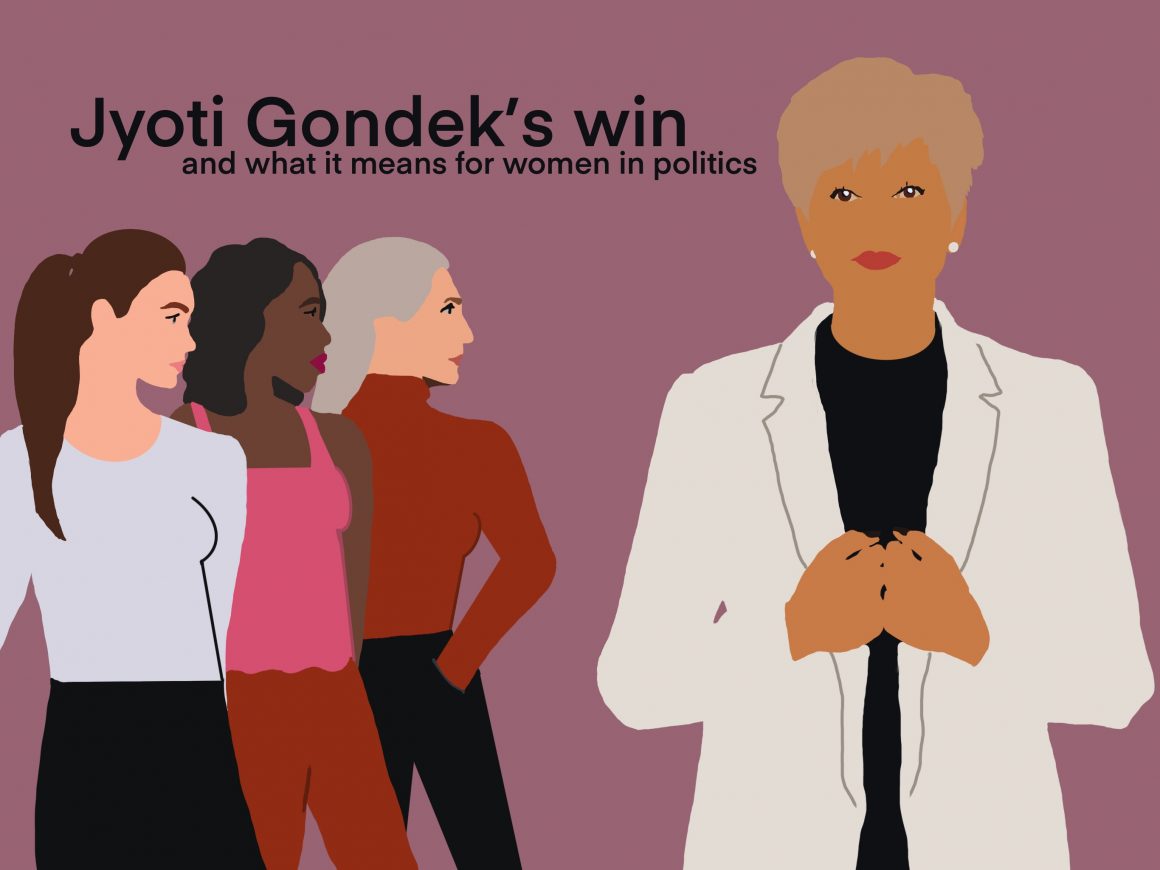
Jyoti Gondek’s mayoral win and what it means for women in politics
By Anjali Choudhary, November 25 2021—
Jyoti Gondek made history by winning the 2021 Calgary mayoral election as a woman of colour. This was not only a personal win, but also a huge step forward for the young and aspiring female politicians in the city. A fearless and unapologetic advocate for women in politics, Gondek serves as a great role model and positive authoritative figure for women across the country. Being a woman of colour, she has broken down multiple barriers and misconceptions surrounding the stereotype of political leaders in large urban cities like Calgary. This challenge to the status quo paves the path for further development and advancement. In Gondek’s case, this win signals the ability for more women to fearlessly seek positions of authority and have an established figure symbolically guide them through the process.
Feminism and the advancement of women globally must be inclusive, intersectional and truly meaningful in order for change to be concrete. We often see the tokenization of women through self-proclaimed feminist companies that ‘champion diversity’, but keep women in middle-management positions and at the bottom of the hierarchy to maintain gender-balanced optics. Not only does this fail to create equitable opportunities for women but it also slows the advancement of their interests overall. Tokenism in a political cabinet or the use of generic buzzwords for a campaign creates a false narrative in which women are alluded to be in major positions of power, when in reality, they are used as social instruments.
Justin Trudeau’s claims of a gender-balanced and feminist cabinet, followed by the demotion and ejection of two key female ministers emexplifies this dangerous pattern. The satisfaction that these unsubstantiated claims create in the general population slow down the crucial work being done for the advancement of gender equality. One effective and inspiring method to truly advancing gender equality is having women represented in positions of authority in order to create role-models for younger generations, as symbols of leadership and authority, rather than a representation of a gender equality quota. Not only is this important symbolically, but positions of authority allow for womens’ aspirations and goals — often including an agenda for gender equality — to be actualized. This is especially true in traditionally male-dominated spheres, such as politics.
Studying political science myself, there are not many influential women in politics who are integrated into the curriculum. As a result, any inspiration for future careers or goals must come from external searching and personal curiosity. Surprisingly, this has proven to be quite difficult despite Canada’s outspoken claims of being a fair and equitable society for all. As a trailblazer, Gondek allows students, especially those at the University of Calgary, to see a woman in a position of true authority and feel confident in the realisticness of having similar goals. Her strong presence in Calgary’s city council is enough to encourage more women to follow in her footsteps and continue to serve as representation for young women.
However, in reality, not everyone wants to be a champion for women’s equality and not everyone wants to constantly fight for a seat at the table. Most simply want to realize their goals without absurd and unproportional obstacles. But until this is possible, female role models must continue to take their rightful place at the top of hierarchies. Physical representation itself in these top positions is a crucial symbol. It allows other women to pursue top positions without wondering whether or not the space exists for them.
It is extremely detrimental for young women to not see representation in their respective fields and aspirational careers because it implies to them that the goals they hope to fulfill are extremely difficult,unlikely, or that they simply aren’t meant to lead. Despite commitments towards gender balance and equality being made by a large majority of institutions, the image of a career filled with old men is undoubtedly intimidating and discouraging. These consequences continue to perpetuate the cycle of a lack of substantial and meaningful representation. Thus, it is crucial for women to spearhead the feminist movememt with groundbreaking achievements such as Gondek’s win, and use it to foster change.
Systemic and cultural change will only happen when these movements and achieved representation is meaningful and substantive. While physical or symbolic representation is certainly the right step forward, the actions taken by women and their genuine belief in the advancement of all women through intersectional feminism is key. The aggressors of tokenism and suppression of women empowerment are not limited to one gender and as a result, the values, claims, and actions of women in power must be critically evaluated. Only when this is done can true empowerment of young women happen.
This article is a part of our Voices section.
